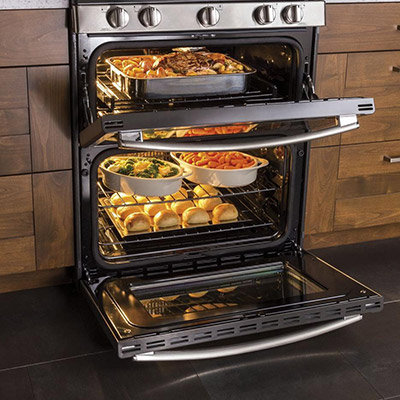Tips to Troubleshoot Your Oven
It doesn’t matter if you only use your oven rarely, or if it’s something you use on a daily basis. When you prepare a dish and pop it into your oven, you expect it to cook properly. When it comes out over or undercooked, pulling out your owner’s manual and reading through the troubleshooting section should be the first thing you do. Unless the problem sounds like something simple, you can fix on your own, the next step will be getting in touch with an appliance repair professional with a great deal of experience when it comes to gas oven repair.
Never, ever try doing any work on your oven without first making sure it’s no longer getting any gas. The best way to do this will be locating the handle on the behind your oven, and turning it off. The best way to make sure the gas has been completely turned off will be trying to turn on the oven. If the gas has been cut, the oven won’t light.
All that you might need to fix your oven could be some diluted baking soda, an old toothbrush, and a straightened paper clip. With these three things you can give your burner a really good cleaning. When you’re finished, it’s possible your food will start baking evenly again.
After cleaning your oven’s burner, the next thing you need to examine as part of the stove repair will be the igniter, a small rectangular or round piece you’ll find close to the burner. It should produce a good strong light. When there’s no light, or the light seems to be weak, you’ll need to get your appliance repair store on the phone and arrange for a gas oven repair service call to have the igniter replaced.
The last thing you need to check will be your oven’s temperature sensor. When you allow your oven to run for a little while, you’ll want to check to see if it’s off by thirty degrees or more. When the difference is high, you need to replace the sensor, if the temp is only a little off, you can fix all of your problems by recalibrating the sensor, a type of oven repair you can do by yourself.
